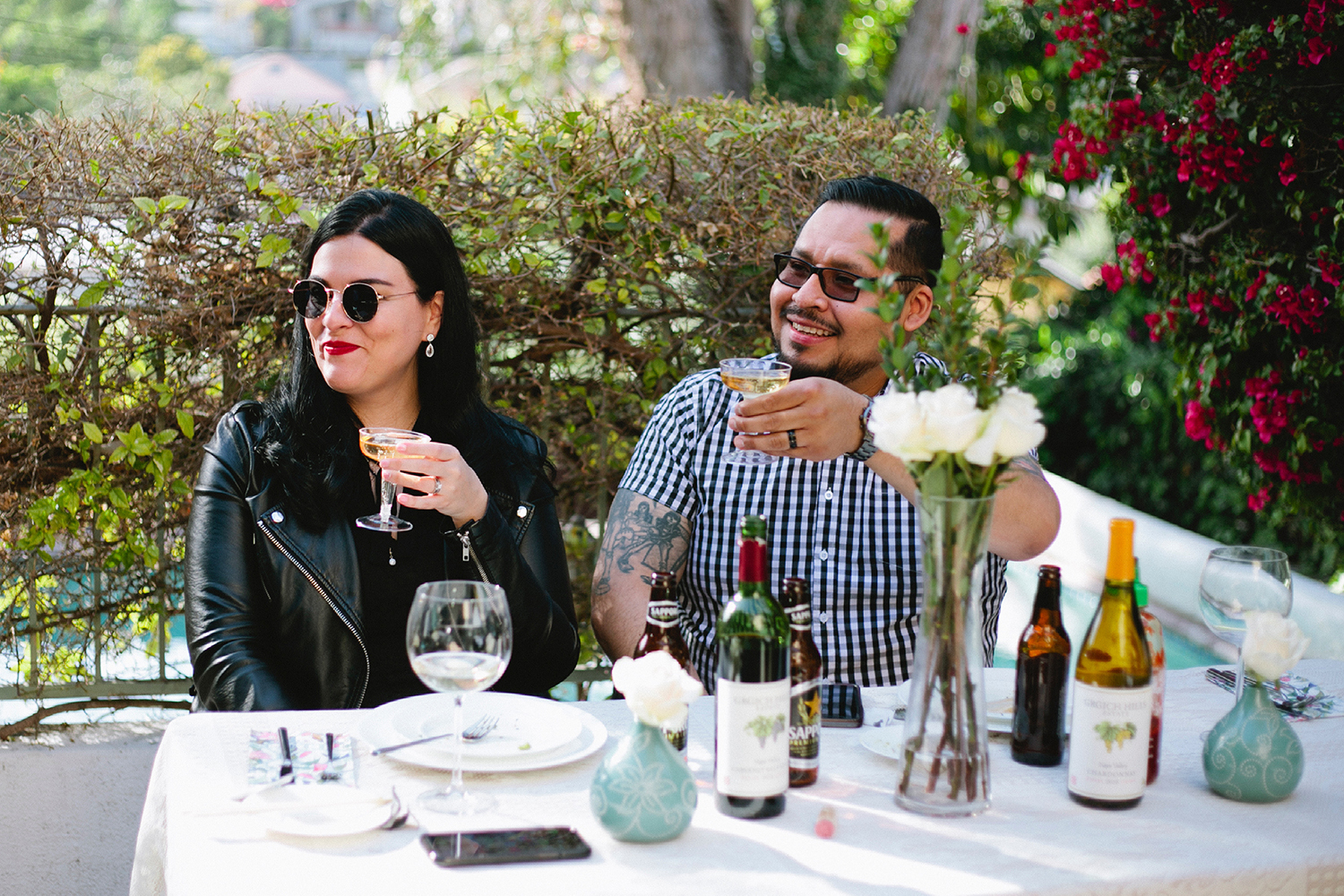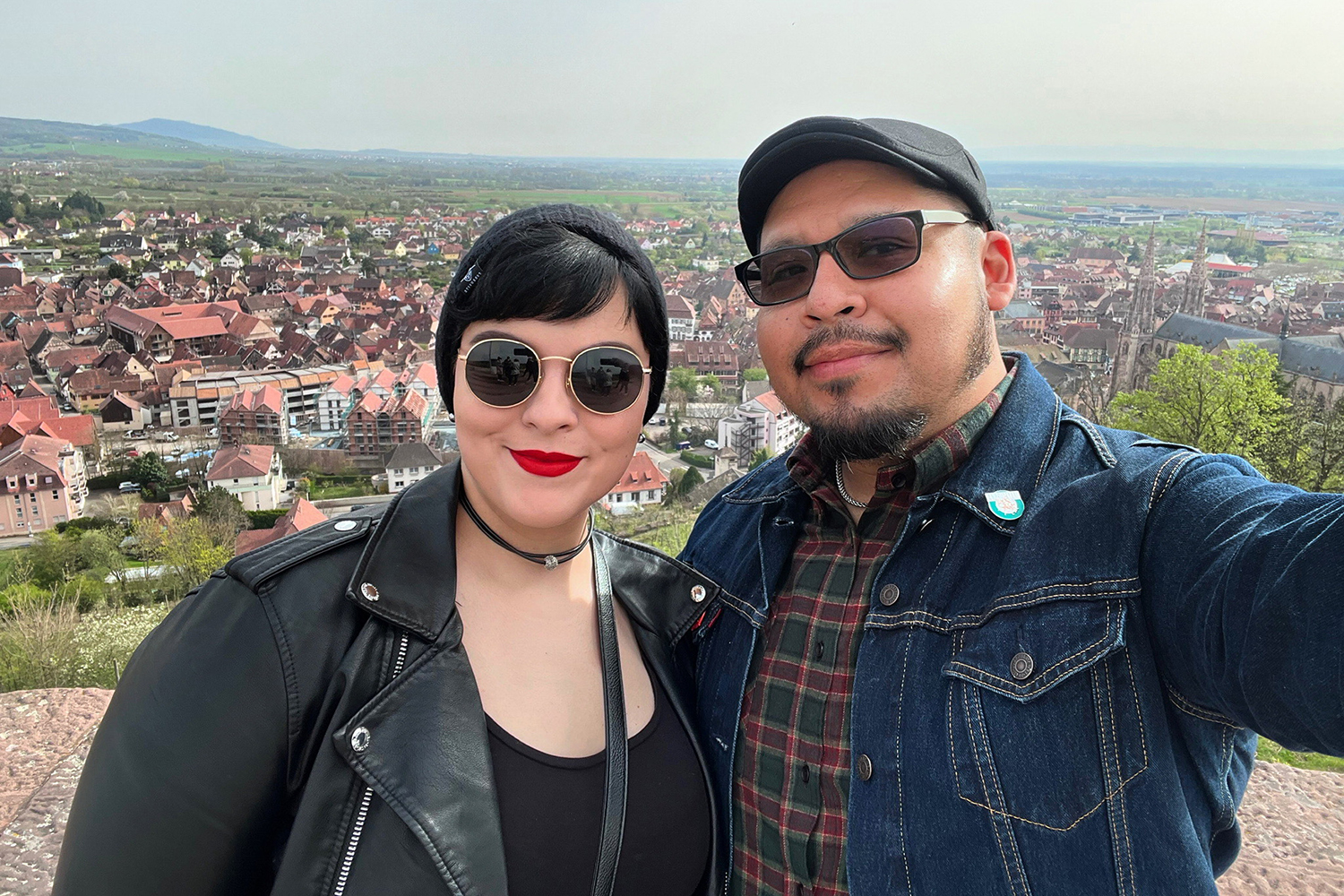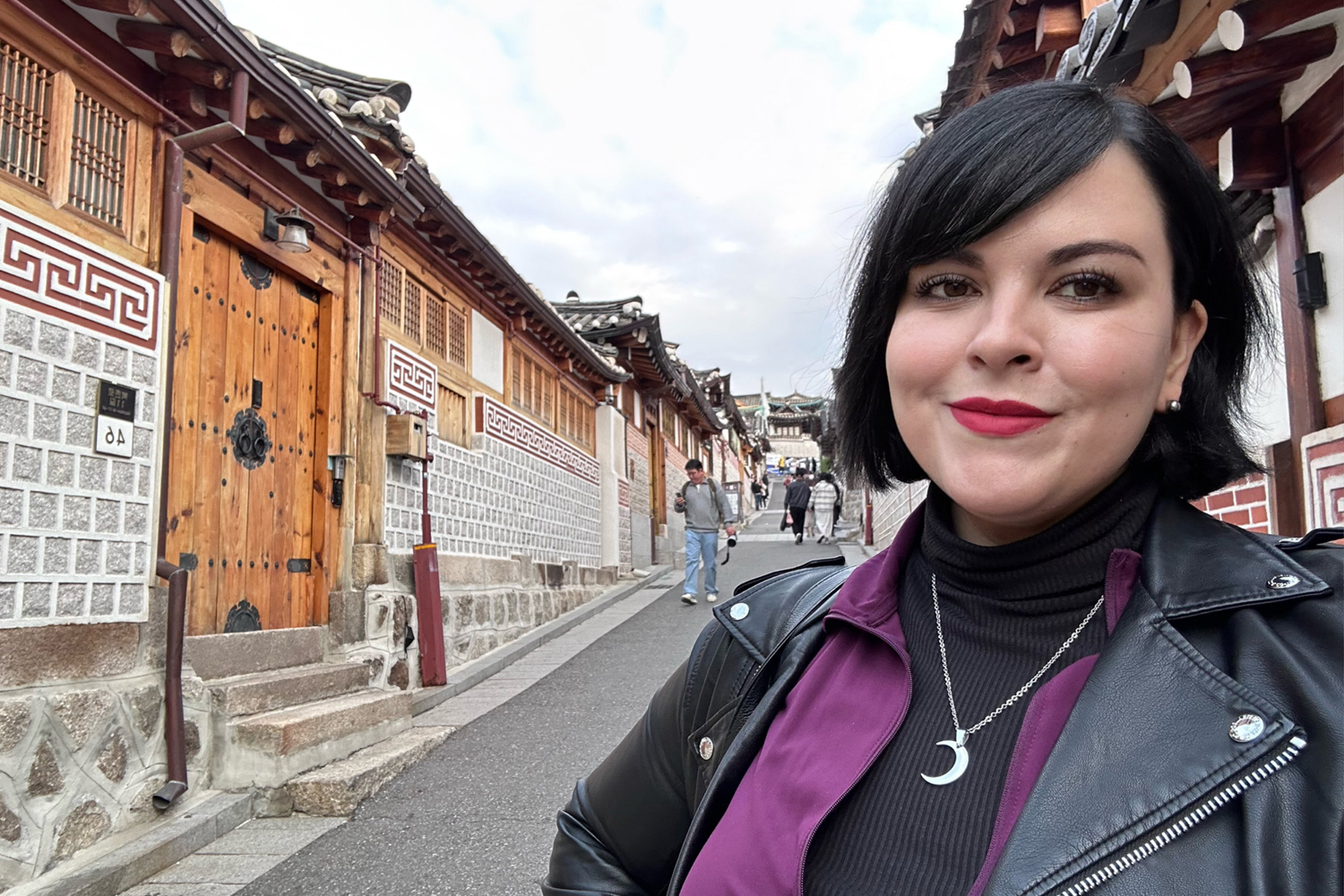SHIRLEY MUÑOZ’S LUNG CANCER DIAGNOSIS was anything but straightforward. The translator, who was born in the U.S. and spent part of her childhood in Mexico, had been experiencing a bad cough and back pain starting in mid-2020, but every time she saw a doctor, she was told something different: She had COVID-19 or pneumonia. Maybe a recent trip to Mexico City, at 7,350 feet above sea level, was the reason she felt so out of breath. A CT scan in March 2021 revealed something, but definitely not lung cancer, the doctors told the 34-year-old nonsmoker. Finally, a biopsy indicated she had stage IV cancer of unknown origin, and her doctors gave her only a few months to live.
Only after switching care providers and doing a slew of additional tests did Muñoz, who lives in La Puente, California, learn she had non-small cell lung cancer—a diagnosis that shocked her. “It’s the hidden cancer no one wants to talk about,” Muñoz says. “My own family has asked me, were you a heavy smoker?”
In the Latino community, lung cancer can be linked to both stigma and diagnosis delays that result in later-stage diagnoses, says Narjust Florez, a thoracic medical oncologist at Dana-Farber Brigham Cancer Center in Boston. While the lung cancer rates in the Latino community are about half of what they are for non-Hispanic whites, Latinos are less likely to be diagnosed early and have lower five-year survival rates compared to non-Hispanic whites with lung cancer, according to the American Lung Association.

Shirley Muñoz with husband Richard at their wedding, just one week after her 2021 cancer diagnosis. Photos courtesy of Shirley Muñoz
Along with being more likely to be underinsured or uninsured, Latinos may mistrust the health care system, resulting in delayed screening and care. “We continue to fail them,” says Florez, whose research focuses on women with lung cancer and equity in cancer care. Unconscious bias in health care settings also plays a role, she says. For example, people who have lived in Central and South America may initially have their breathing problems diagnosed as tuberculosis—something that Muñoz experienced. And there is a lot of shame associated with lung cancer because smoking is a risk factor. “Lung cancer is seen as a disease that you deserve,” Florez says, but “no one deserves cancer.”
An added challenge is that much of the information that could help with earlier care and treatment—and reduce the stigma around lung cancer—is not available in Spanish, or not in a way that people can really understand. For example, instead of tailoring material to the community, Florez says, “somebody gets a brochure and puts it in Google Translate.”
That’s one of the places where Muñoz wants to step in to help more people learn about lung cancer, which she has started doing by sharing her experience on Spanish-language TV news broadcasts and educational videos. She began working as a translator after college, thinking it was a temporary job before she started teaching. Now, she’s a project manager and primary translator for English to Latin American Spanish for a Los Angeles-based translation firm. Having lived in both the U.S. and Mexico, she brings her language skills and a knowledge of both cultures to her work and to broadening cancer awareness in the Hispanic community. “I was told it was impossible for a 34-year-old nonsmoker to have lung cancer,” she says. She wants others to avoid the challenges she experienced in getting diagnosed and to reassure people that new tests and therapies can help. Recently she appeared in a video for a liquid biopsy company communicating the importance of biomarker testing to a Spanish-speaking audience.
Biomarker testing was critical in Muñoz’s treatment. Before her new care team at City of Hope Cancer Center in Duarte, California, diagnosed her lung cancer, she was receiving chemotherapy and radiation, which temporarily irritated her esophagus and caused other longer-term side effects. Only when a pathologist requested additional tissue for a third round of biomarker screening did Muñoz learn that her tumor was positive for ALK, a genetic mutation found in about 5% of non-small cell lung cancer patients, primarily younger people without a history of smoking. Her doctors started her on a targeted therapy, Alecensa (alectinib), which has allowed Muñoz to return to work and to travel both in the U.S. and internationally.
This winter, she’s taking several trips to inform her efforts to help other Spanish speakers learn more about cancer prevention and treatment. In February, she is attending the Advancing the Science of Cancer in Latinos conference in San Antonio as well as an advocacy session prior to the conference to learn about tools to advocate for Latino patients and to connect patients with clinical trials. “Latinos tend to be really scared of clinical trials,” Muñoz says. “They think that they’re always going to get the placebo, that they’re not going to get the actual treatment.” When she spoke with her family about the possibility of doing a clinical trial, “They were like, ‘Oh, no, you shouldn’t do that. They’re just going to let you die.’”

Shirley Muñoz with husband Richard on honeymoon in France. Photos courtesy of Shirley Muñoz
In March, she’ll visit Washington, D.C., as part of the GO2 for Lung Cancer 2024 Lung Cancer Voices Summit, where she’ll meet other advocates as well as her representative in Congress to push for more federal funding for lung cancer care and more understanding that this disease can affect people of all backgrounds. “Anyone with lungs can get lung cancer,” Muñoz says.
One of the key things she wants to communicate, in any language, is that treatment advances mean many people with lung cancer can continue to live fulfilling lives. “Cancer is not an immediate death sentence anymore,” she says.
Cancer Today magazine is free to cancer patients, survivors and caregivers who live in the U.S. Subscribe here to receive four issues per year.





